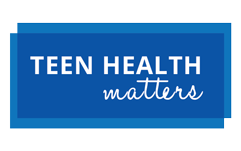
School is nearing and it’s time for your routine check-up at the doctor’s office.
Blood pressure- check!
Heart rate- normal!
Lung exam- clear!
The doctor reviews your health records to make sure your up-to-date on all your vaccinations for the school year. All seems well, and then your doctor recommends that you be vaccinated against human papilloma virus (HPV). You might ask, “But why? I’m a boy.”
While many of us are already aware that the HPV vaccine is often given to girls to protect against cervical cancer, it is important to note that HPV doesn’t only pose a risk for girls. HPV can cause a variety of other cancers and diseases, as well, such as anal cancer, penile cancer, mouth cancer, and genital warts. The CDC recommends that both girls and boys be vaccinated against HPV as early as age 11 or 12 (and up to age 21 for males and 26 for females).
How do people get HPV?
HPV is transmitted from one person to another through unprotected sexual activity. A person can get HPV even if their partner doesn’t show any signs or symptoms of the infection. In fact, most people with HPV never develop symptoms or health problems as most infections disappear within two years. However, in many cases, HPV infections can persist, ultimately causing certain cancers and other diseases. Moreover, HPV can develop even if years have passed since you or your partner has had sexual contact with an infected person.
HPV Vaccine for Males
According to the CDC, there are two HPV vaccines recommended for males-Gardasil and Gardasil 9. The Gardasil vaccines have been studied extensively and shown to be very safe. The vaccine is administered as a series of 3 doses and has been shown effective in preventing HPV infections that can cause cancer of the mouth, penis, and anus, as well as genital warts. If you are a male, you should consider being vaccinated to prevent the potential spread of HPV to your current and future partners.
So if you haven’t gotten the vaccine yet, talk to your parents today and take advantage of your next visit to the doctor!
[social_link type=”twitter” url=”https://twitter.com/teenhlthmatters” target=”” ][social_link type=”facebook_account” url=”https://www.facebook.com/TeenHealthMatters/” target=”” ] [social_link type=”instagram_account” url=”https://www.instagram.com/teenhealthmatters_/” target=”” ]

